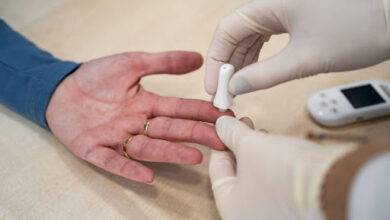Recognising when your health has been compromised

Healthcare errors affect hundreds of thousands of patients annually in the UK, making it essential for individuals to recognise when their care may have fallen short of expected standards. Understanding the warning signs of substandard care and knowing your rights as a patient can be vital for protecting your health and guaranteeing appropriate treatment. Recent statistics reveal that recognising these signs early and taking action can literally save lives.
Identifying Warning Signs of Substandard Care
Common indicators of compromised healthcare include misdiagnosis, delayed treatment, poor communication between medical staff, and failure to respond to deteriorating conditions. Watch for situations where symptoms are dismissed without proper investigation, where different healthcare providers give conflicting information, or where you feel your concerns aren’t being heard or documented properly. According to recent data from Imperial College London and cited by The Guardian, medical errors in the NHS cost £14.7 billion annually and result in approximately 820 preventable deaths each year. These statistics highlight the importance of being vigilant about the quality of care you receive. Warning signs also include medication errors, surgical mistakes, infections acquired during hospital stays, and inadequate monitoring of your condition during treatment.
Understanding Your Rights as a Patient
Under UK law, patients have fundamental rights, including the right to informed consent, access to medical records, and the ability to request second opinions. You have the right to understand your diagnosis, treatment options, and potential risks before consenting to any procedure. Healthcare providers must communicate with you in a way you can understand and respect your decisions about treatment. Martha’s Rule, introduced across 143 NHS hospitals in 2024, is a significant advancement in patient rights. This initiative allows patients and families to request urgent medical reviews when they’re concerned about deteriorating conditions that aren’t being adequately addressed. Early data shows Martha’s Rule has already been invoked 573 times, with 50% resulting in urgent reviews and 20% leading to escalated care, potentially saving lives.
Recognising the Impact of Medical Errors
Medical errors can manifest in various ways, from incorrect prescriptions and surgical mistakes to failures in diagnosis and inadequate post-operative care. Research indicates that 237 million medication errors occur annually in England, with 66 million being potentially clinically significant. Understanding the potential consequences of these errors is very important, as they may constitute medical negligence depending on the circumstances and outcomes. The impact of medical errors goes beyond immediate physical harm. Delayed diagnosis can worsen conditions that might have been easily treatable if caught early. Medication errors can cause adverse reactions, drug interactions, or ineffective treatment. Surgical errors might require additional procedures or result in permanent complications. Hospital-acquired infections are another significant category of medical errors, with rates of certain infections increasing in recent years. These errors can have lasting consequences on your health, quality of life, and financial wellbeing, making early recognition and reporting essential.
Steps to Take If You Suspect Compromised Care
If you believe your care has been compromised, start by seeking a second medical opinion from a qualified healthcare provider. Document everything related to your concerns, including dates, times, names of staff involved, and specific details about what went wrong. Keep copies of all medical records, test results, and correspondence with healthcare providers. File formal complaints through the appropriate channels, starting with the hospital or GP practice’s Patient Advice and Liaison Service (PALS). If unsatisfied with their response, you can escalate to the Parliamentary and Health Service Ombudsman. For serious concerns about care quality, report to the Care Quality Commission (CQC), which regulates healthcare providers in England.
Consider seeking legal advice if you’ve suffered harm due to medical errors. Many situations involving compromised care may warrant investigation for potential medical negligence claims. Remember that taking action protects your interests and helps prevent similar errors from affecting other patients in the future.




